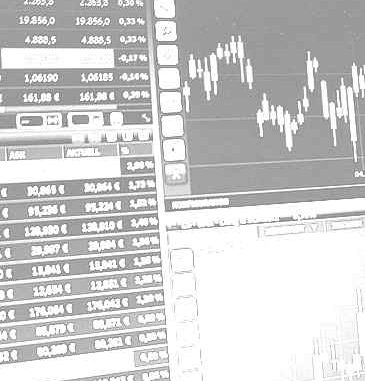
There are two economies out there. One is very dangerous: the feral economy.
Richard Murphy is Professor of Practice in International Political Economy, City University of London. He campaigns on issues of tax avoidance and tax evasion, as well as blogging at Tax Research UK
Cross-posted from Tax Research UK
I, by chance, revisited a piece I wrote wrote in 2011 over the weekend. It started on this blog and was republished by the Guardian. This is in extract::
As I’m explaining in my forthcoming book – The Courageous State – there is a two-part economy in this world. There’s the real one – the one where you and I live and meet our needs, make and sell things (if only words on screens) and which is the measure of real well-being.
Then there’s the other one – the feral one, if you like (feral as in wild and out of control) – existing way beyond the limits of the real economy and only loosely related to it, made up of the enormous financial balances denominated in cash of various sorts, existing only as entries in computer ledgers. Some of these cash balances are backed up by supposed assets, which are at best legal claims on property which may or may not realise real worth, such as shares (whose value usually have almost no direct bearing to the companies that lend them their names), property (which has been priced as a consequence beyond the reach of the real economy) and more obscure derivative products, which few understand and which even fewer trade in ever larger amounts.
This feral economy represents the wealth quite deliberately extracted from the real economy by those who have exploited it over the last thirty years of neoliberal domination by ensuring that the share of real wages in GDP has fallen from about 58% in 1980 to about 53% now (see diagram 1 here for detail) – with the cash they have extracted being stashed as unproductive wealth (often offshore). That unproductive wealth, whether held as cash or placed in assets that have near liquidity such as shares, property, derivatives, hedge fund and other portfolios, has had enormous consequences. There are many; let me just note two.
The first is that the refusal of the owners of this wealth to engage it constructively in the economy has been a contributory factor to underinvestment, stagnant real wages, and the rise in what has effectively been enforced borrowing by far too many households struggling to make ends meet – who have become increasingly indebted to the agents of the feral elite in the process (see diagram 3, here), reinforcing the whole vicious cycle as a consequence and withdrawing yet more and more funds from the real economy and into the free-floating world of feral finance. The relationship of feral finance with the real economy has, therefore, been wholly negative here.
Second, the use of those feral financial balances to undermine currencies in pursuit of short-term gain and maximum income returns has brought the whole edifice to the point of breaking. Breaking the real economy does nothing to the feral economy – downsides can be traded as much as upsides in the feral world of finance: gain is to be had in this world whatever happens in the real one. But the relationship of the feral economy with the real economy is again wholly destructive: those feral deals – done beyond regulation, assisted by the world of secrecy that tax havens provide, are bringing destitution, unemployment, real failure and fear to real lives.
I revisited the piece because I now think that this duality within the macro economy, where there is a ‘real’ economy meeting actual need and a ‘feral’ economy that seeks to extract unearned reward from that process, is exactly matched in multinational corporations.
In those companies there is, of course, an element of ‘real’ economic activity. Carillion, for example, really did build things. But the truth is that laid over this operational reality that may be profit driven, there is a second, almost contiguous, operation that seeks to extract reward from it by gaming contracts, finance, tax and accounting to secure unearned rewards largely paid out to a select few within the company who partake in these rent seeking activities.
It is as if the modern corporation has a split identity. There is a part that is seen on the High Street, or wherever it meets real need, and another part that acts like a parasite sucking the life blood of that real activity by transforming its surpluses into rent for a few.
What Carillion (and others) show is that this parasitical operation can function for a while. And then it kills the host.
That process of death by rent extraction does not happen overnight, but I suspect the outcome is inevitable. If so, no wonder the current form of captilism – which I rightly called ‘feral’ – is dying.



Be the first to comment